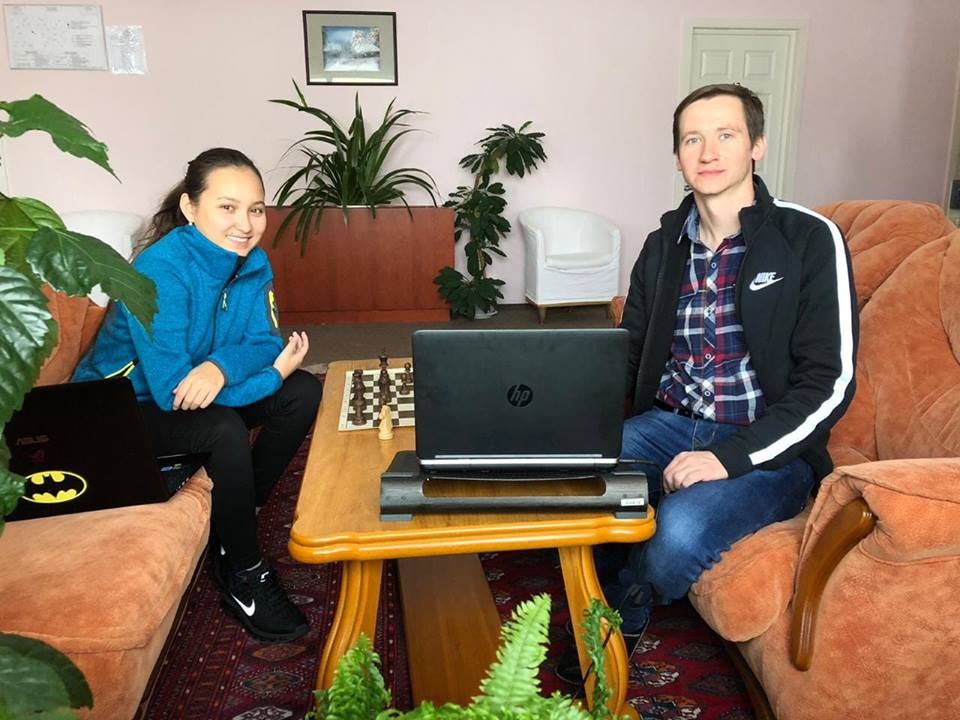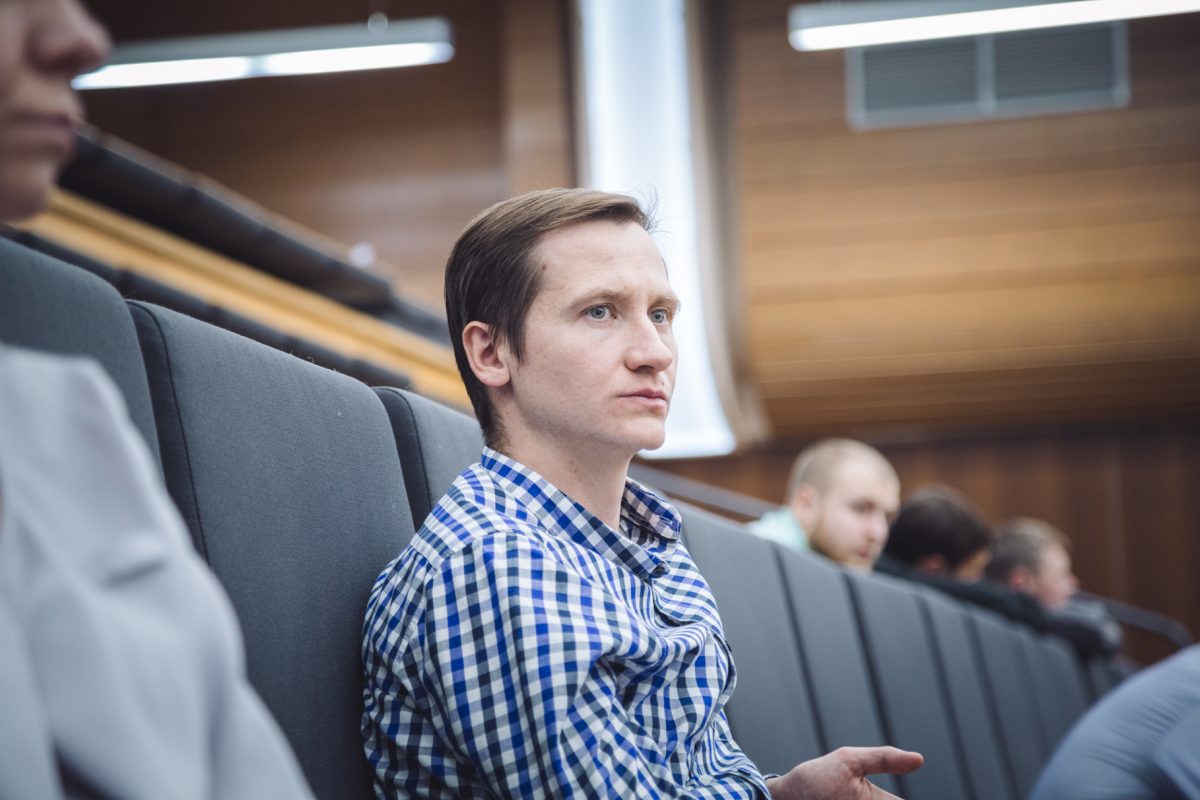Zahar Efimenko: You must not tell girls anything negative!
Few coaches of the championship participants decided to arrive to Khanty-Mansiysk in person. The Ukrainian grandmaster Zahar Efimenko, coach of the 18-year-old Zhansaya Abdumalik, is one of them. Personal presence seems to work – Abdumalik played very convincingly in the first two rounds.

– Zahar, how big a role plays a coach in modern chess?
– I think having a coach becomes increasingly important. The amount of information grows constantly, and it is hard to deal with it on one’s own. There must be someone who will prepare guidelines for the upcoming game.
– These days coaches often do not travel with their players, relying on long distance help. Why are you in Khanty-Mansiysk?
– I think having a coach near you is always better. I can quickly react to any changes of the situation, much quicker than another coach working via Skype. For instance, a tie-break is underway, and you need to come up with an opening improvement. It is nearly impossible to do that from home, while here I can just come with my laptop and help.
– Is it important for Zhansaya to see the familiar face of her trainer in the playing hall, to sense your confidence?
– It is indeed important for her. We had a discussion before the championship whether I should join her in Khanty-Mansiysk, and she basically insisted on that. She need both chess and psychological help. When I am near, she feels more confident. And I am happy to do anything to make her play better. Her mother always sits among spectators. I stay there for an hour or so, and then leave to work.
– How did chess change from the trainer’s point of view?
– Chess became more concrete, accurate, computerized; general plans and broad evaluations are not longer in use. The coach must do all the preparatory work for the player and provide him with definite answers. After all, everybody has the same engines, but not everybody can use them in the proper way. And you have to dissect each position you are recommending, listing dangerous and safe directions of play.
Back when Sergey Karjakin and I worked for Kramnik, we arrived at the position with three possible continuations, each evaluated at 0.00. Karjakin asked: “Vladimir Borisovich, where should we go?” Kramnik looked at him and replied: “Serge, but this is why I gave this computer to you, not to Mary Ann from across the street”. Picking the right option is a skill.
Of course, psychological help and other aspects are important as well, but a good trainer makes the difference, seeing what others cannot.
– Does being an active chess player help your coaching?
– Without a doubt. I play these positions myself and can judge, which lines are promising and which are dead end.
– What is the difference between good work and bad work?
– You need to dig deep. I learned that working with Kramnik – examining the position from both sides, finding hidden resources for both sides. And the most important thing is that your player must have excellent understanding of what she will do next. Some trainers I know do not give evaluations at all – they just send their players a block of analyses: deal with it! To me, this is bad work.
– Do you have to attempt changing your player’s chess personality?
– It depends. In my opinion, a coach must be able to find weakness of his player and try to eliminate them. For example, previously Zhansaya worked with Chuchelov, who taught her some openings she continues to use now. I do not force her to learn new stuff, only help her dealing with the weaknesses I see. However, if we decide she needs to learn a new opening, we will do that.
Applying the same approach to both Kramnik and Abdumalik would make no sense. They need different amount of information, different depth of analysis. Of course, I could prepare Zhansaya the way I would prepare Kramnik, but she would be unable to remember and use it all.

– How the players manage to remember such a load of variations?
– It is a common problem, and everybody approaches it in their own way. However, there is a general tendency to play more simple lines. Very few people continue to employ the Botvinnik variation or the sharpest lines of the Meran. Everybody chooses the Italian, the Petroff, the Berlin, or not very challenging setups like Nf3, g3, b3.
– Is that because people do not want to take risks or cannot remember everything in sharper openings?
– The latter, I think. One can usually prepare something sharp for one or two games, but remembering it all in the long run is difficult. Therefore they opt for safety.
– You worked with both men and women. Is there a difference in your approach?
– Well… You must not tell girls anything offensive or negative. It is a very big stress for them. Men, on the contrary, often gain motivation from negative commentary, begin to work harder to overcome the problem. With women you should be more accurate with words. For example, you can tell her that she is very talented, but needs to improve a certain area a little bit (smiles).
– And what about psychology and motivation?
– In women’s chess psychological preparation is about 50% of the success! Having a good mood is sometimes more important that an opening preparation. You need to give your player a boost of confidence. This is less important for men – they’ll be all right if they had a good sleep and quality preparation.
Women also need more help after the games, especially after losses. They need to regain confidence, forget about the defeat, must not lose control of emotions. Chess competition is a long and enduring process and is rarely decided by a single poor game.